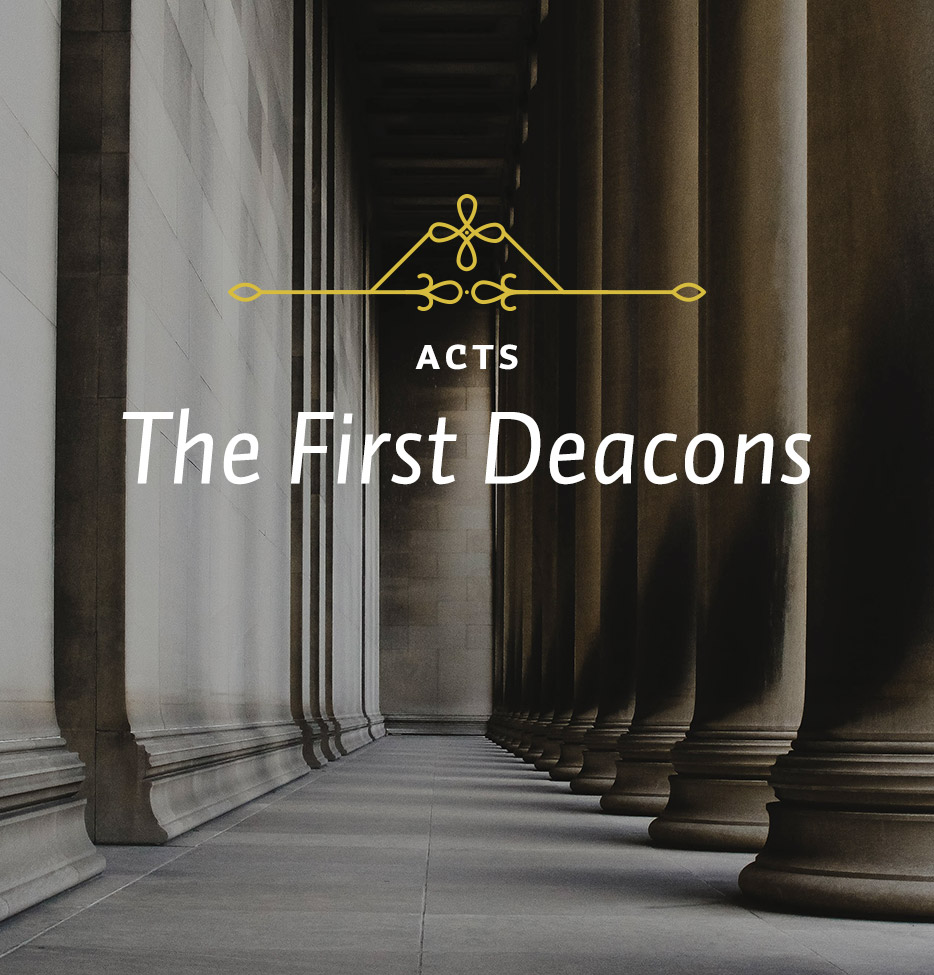The apostles did not use any of the approaches we looked at in yesterday’s study. They went to the congregation itself and, I suspect, appealing chiefly to those who were complaining of the difficulty, said, “Look, just choose people who in your judgment are able to oversee the distribution fairly.” The apostles were not trying to protect their own rights. They said, “This is a problem that we shouldn’t have to handle. The church ought to be one church. We want to be one fellowship. So work it out. We will be happy with whatever you do to solve the problem.”
The church got together and elected the first deacons, seven of them. The significant thing about their choice is that every one of these men, to judge from their names, was a Greek-speaking Christian. The Greeks were the ones who were complaining that their widows were neglected. So the church as a whole (and I would imagine there were more Aramaic-speaking Christians in the church than there were Greek-speaking Christians) said, “Let’s elect Greek-speaking leaders.”
They might have said, “There should be a few Greeks on this board to represent the Greek point of view. But we are the majority. At least four of the seven should speak Aramaic.” But they did not operate that way. Either they deliberately picked the Greek-speaking leaders, or else they said, “Let’s just pick out the seven best men.” However they did it, when the vote was added up, the ones that were chosen were the Greeks. They were the following: Stephen (who Luke says was a man “full of faith and of the Holy Spirit”); Philip (whom we will see again in chapter 8—later in the book he is called an “evangelist” [Acts 21:8], the only person in Acts to be so named); Procorus; Nicanor; Timon; Parmenas; and Nicolas (a man from Antioch who had been a convert to Judaism).
These men then became the first official body of officers in the church other than the apostles, who were appointed by Jesus Christ.
The selection of these men gives us important principles for sound church leadership. We see these principles here, but we also see them elsewhere in the New Testament.
1. A division of responsibility. Paul writes about spiritual gifts at various places in his letters, stressing always that the Holy Spirit gives gifts to each one. This means that every Christian has at least one gift. So if you have a situation in which people are not exercising their gifts, the result is always an impoverished church. No one person has all the gifts. So the gifts he does not have but which others have are unused, and the church is poorer by that amount.
People who study church growth factors say that in order to have a maximally healthy church at least sixty percent of the people should be engaged in some church work. If you have a church where sixty percent of the people are engaged in some work for Jesus Christ, that church is in ministry. It is working, and others who are on the fringes tend to get drawn in. On the other hand, as valuable as that sixty percent figure may be as a goal to shoot for, it can never be the ideal. The ideal is one hundred percent, and the apostles, with the wisdom given to them by God, recognized this principle when they suggested the election of these deacons.






